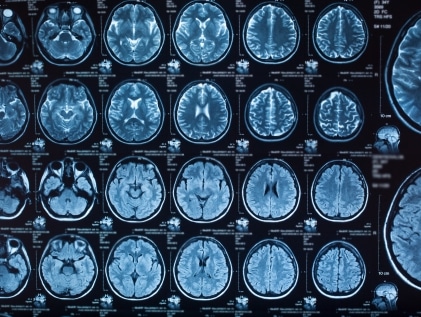While most of us generally associate dementia and its symptoms with seniors over sixty-five, dementia can be caused by factors other than age. Dementia is most often caused by infection, alcoholism, and head injuries, and older people that sustain a head injury are more likely to have complications such as dementia. This is alarming when you consider that approximately 2.8 million Americans sustain a head injury every year, with seniors making up a large percentage of that number.
Dementia is not a disease but an umbrella term used to refer to a host of symptoms associated with damage to brain cells. Causes can vary and include reversible conditions such as malnutrition and urinary tract infections and progressive illnesses like Parkinson’s and Huntington’s disease. If your loved one is free from illness but has recently suffered a severe head injury, be on the lookout for any of the below symptoms of dementia:
- Being unable to recognize family members and close friends and forgetting their names
- Forgetting details of recent events or conversations, especially with increasing frequency
- Difficulty finding words, accompanied by pauses, and using words in the wrong context
- Having trouble with executive functioning skills, including planning and organizing or completing multi-step tasks
- Experiencing episodes of confusion and disorientation or getting lost while driving
- Disregarding social norms in public
- Difficulty with coordination, balance, and motor functions
- Impulsive behavior, mood swings, and aggression
- Insomnia, headaches, fatigue, and poor concentration
- Not having an awareness of memory issues and cognitive changes
Forty percent of head injuries are caused by falls, a specific concern for seniors as they age and begin to lose balance and mobility. Unintentional blunt trauma, motor vehicle accidents, and assaults are also common causes of head injuries. Typically, dementia symptoms related to a head injury will appear within a month of your loved one’s incident. Unlike other types of dementia, such as Alzheimer’s disease, dementia that occurs after a head injury usually does not worsen over time. In some cases, it may even improve, but those improvements are usually very gradual and may take months or years.
If your loved one is exhibiting any of the above symptoms or you’ve noticed them withdrawing or showing signs of depression after a head injury, a visit to their physician is crucial. If necessary, their physician may take a CT scan or even an MRI to determine if the brain is showing any abnormalities.
To lower your loved one’s risk of a head injury, remind them to always wear their seat belt, arrange their living space to reduce the chance of falling, and encourage them to engage in daily exercises that will improve balance and coordination.

